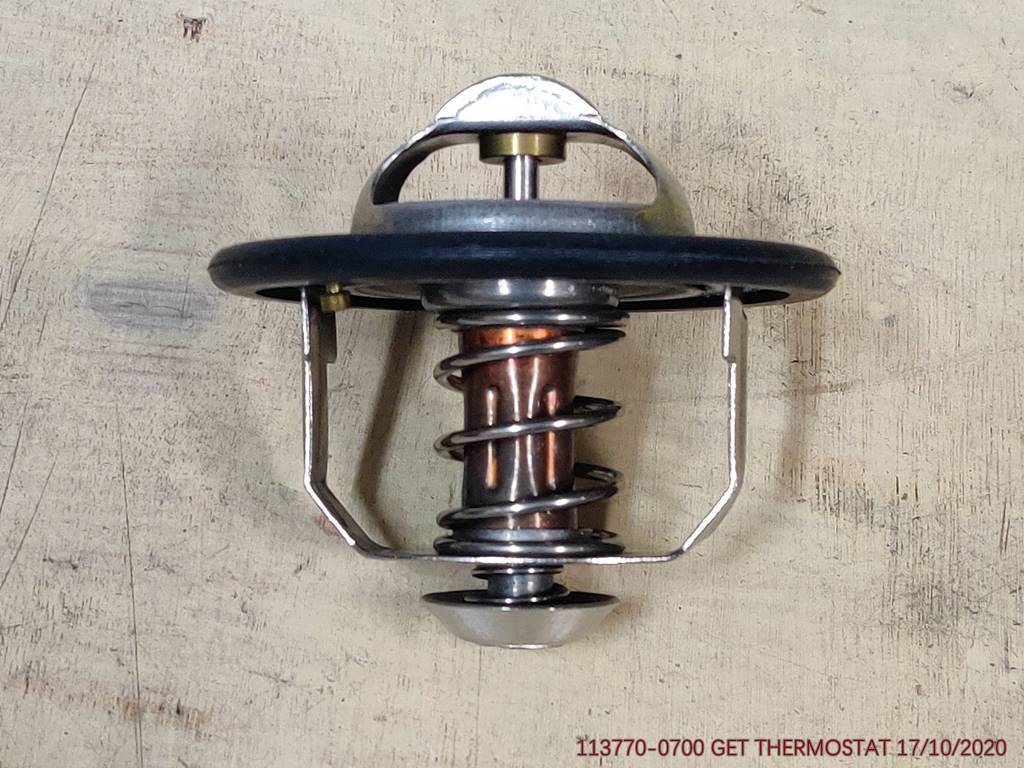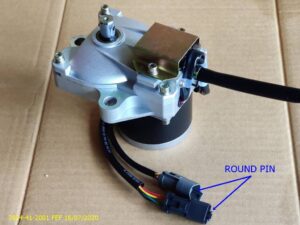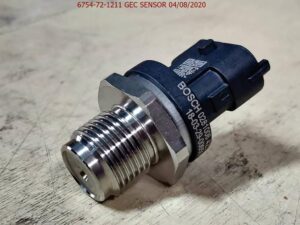THERMOSTAT
The thermostat is an important component in a vehicle’s cooling system. Its primary function is to regulate the engine’s operating temperature by controlling the flow of coolant through the engine and radiator.
Here’s how it works:
Temperature Sensing: The thermostat contains a temperature-sensitive element, usually a wax pellet or a bimetallic coil, that expands or contracts in response to changes in coolant temperature.
Valve Control: When the engine is cold, the thermostat remains closed, blocking the flow of coolant to the radiator. This allows the engine to warm up quickly to its optimal operating temperature.
Opening and Closing: As the engine heats up, the thermostat senses the temperature rise. Once the coolant reaches the predetermined temperature (usually around 180-200 degrees Fahrenheit or 82-93 degrees Celsius), the thermostat begins to open, allowing coolant to flow from the engine through the radiator.
Coolant Circulation: With the thermostat open, coolant circulates through the radiator, where it is cooled by airflow or a cooling fan. Once the coolant temperature drops below the set threshold, the thermostat begins to close again, reducing coolant flow to maintain the engine’s operating temperature.
Engine Protection: Maintaining the correct operating temperature is crucial for the longevity of the engine components. Overheating can cause damage to engine parts such as the cylinder head, gaskets, and piston rings. On the other hand, running too cold can lead to increased wear and reduced engine efficiency.
Overall, the thermostat helps ensure that the engine operates within its optimal temperature range for efficient combustion, proper lubrication, and minimized wear and tear. If the thermostat fails, it can lead to engine overheating or inefficient operation, so it’s essential to replace it if it malfunctions.
PC200-6 , PC220-6




